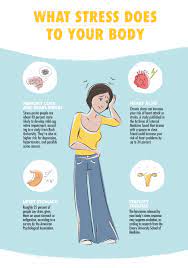The Impact of Anxiety and Depression on Mental Health
Anxiety and depression are common mental health disorders that affect millions of people worldwide. While they are distinct conditions, they often coexist and share similar symptoms, such as persistent feelings of sadness, hopelessness, or worry.
Anxiety:
Anxiety is characterized by excessive worry, fear, or unease about everyday situations. It can manifest in various forms, including generalized anxiety disorder (GAD), panic disorder, social anxiety disorder, and phobias. People with anxiety may experience physical symptoms like rapid heartbeat, sweating, trembling, and difficulty breathing.
Depression:
Depression is a mood disorder that causes persistent feelings of sadness and loss of interest in activities once enjoyed. It can lead to a range of emotional and physical problems and can affect how a person thinks, feels, and behaves. Symptoms of depression include fatigue, changes in appetite or weight, sleep disturbances, feelings of guilt or worthlessness, and thoughts of death or suicide.
Treatment Options:
Both anxiety and depression are treatable conditions. Treatment options may include psychotherapy (such as cognitive-behavioral therapy), medication (such as antidepressants or anti-anxiety drugs), lifestyle changes (such as regular exercise and stress management techniques), and support groups.
Seeking Help:
If you or someone you know is experiencing symptoms of anxiety or depression, it’s essential to seek help from a mental health professional. Early intervention can lead to better outcomes and improved quality of life. Remember that you are not alone in your struggles, and there is support available to help you through difficult times.
6 Essential Tips for Managing Anxiety and Depression
- Practice deep breathing exercises
- Engage in regular physical activity
- Maintain a healthy diet and get enough sleep
- Talk to a trusted friend or therapist about your feelings
- Practice mindfulness and meditation
- Limit caffeine and alcohol intake
Practice deep breathing exercises
Practicing deep breathing exercises is a simple yet effective way to manage symptoms of anxiety and depression. Deep breathing can help calm the mind, reduce stress levels, and promote relaxation by activating the body’s natural relaxation response. By focusing on slow, deep breaths, you can increase oxygen flow to your brain and body, leading to a sense of calm and clarity. Incorporating deep breathing exercises into your daily routine can be a valuable tool in coping with feelings of anxiety or depression and promoting overall mental well-being.
Engage in regular physical activity
Engaging in regular physical activity is a beneficial tip for managing anxiety and depression. Exercise has been shown to release endorphins, which are natural mood lifters that can help reduce feelings of stress and improve overall well-being. Physical activity also promotes better sleep, boosts self-esteem, and provides a healthy distraction from negative thoughts. Whether it’s going for a walk, practicing yoga, or participating in a team sport, incorporating exercise into your routine can have a positive impact on your mental health.
Maintain a healthy diet and get enough sleep
Maintaining a healthy diet and ensuring you get enough sleep are crucial factors in managing anxiety and depression. A balanced diet rich in nutrients can support your mental well-being by providing the necessary fuel for your brain to function optimally. Additionally, getting sufficient sleep is essential for emotional regulation and cognitive function, helping to reduce symptoms of anxiety and depression. Prioritizing these lifestyle habits can contribute to overall mental health and resilience in facing life’s challenges.
Talk to a trusted friend or therapist about your feelings
Talking to a trusted friend or therapist about your feelings can be a crucial step in managing anxiety or depression. Opening up about your emotions allows you to express yourself, gain perspective on your thoughts, and receive support from someone who cares about your well-being. A friend or therapist can offer empathy, guidance, and validation, helping you feel less isolated and more understood. By sharing your feelings with a trusted individual, you may also uncover coping strategies and solutions to navigate through challenging times effectively. Remember, reaching out for help is a sign of strength and can lead to positive changes in your mental health journey.
Practice mindfulness and meditation
Practicing mindfulness and meditation can be beneficial for managing symptoms of anxiety and depression. By focusing on the present moment and cultivating a non-judgmental awareness of thoughts and feelings, individuals can learn to observe their emotions without being overwhelmed by them. Mindfulness techniques, such as deep breathing exercises and guided meditation, can help reduce stress levels, promote relaxation, and improve overall mental well-being. Incorporating regular mindfulness practices into daily routines can provide a sense of calm and clarity amidst the challenges of anxiety and depression.
Limit caffeine and alcohol intake
Limiting caffeine and alcohol intake can play a significant role in managing anxiety and depression. Both substances can have a direct impact on mood and exacerbate symptoms of these mental health conditions. Caffeine, found in coffee, tea, and energy drinks, can increase feelings of restlessness and agitation, leading to heightened anxiety levels. Similarly, alcohol, while initially providing a sense of relaxation, can disrupt sleep patterns and contribute to feelings of sadness or hopelessness associated with depression. By reducing consumption of caffeine and alcohol, individuals may experience improved mental well-being and better regulate their emotions.


